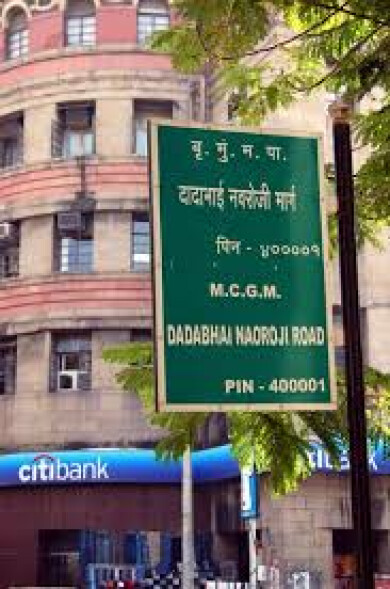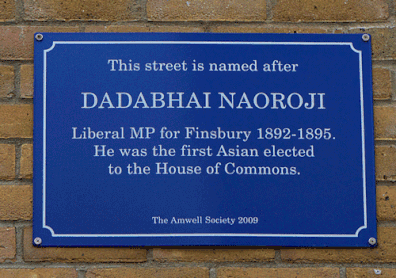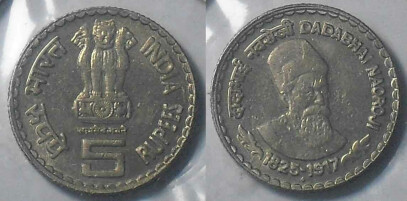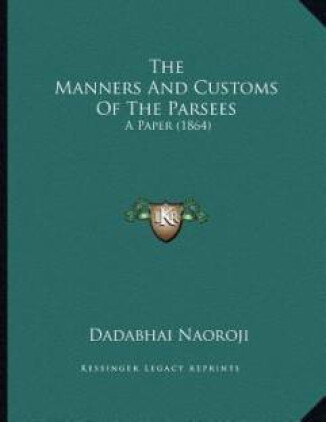
If you have been passing by D N Road in Fort endless times without ever stopping to think about the street's monicker, today's the day to pause awhile.
Today's the day 100 years ago that Dadabhai Naoroji, the 'grand old man of India' breathed his last in Mumbai. Parsi intellectual, educator, cotton trader, and an early Indian political and social leader, Dadabhai Naoroji was one of the intellectuals who shaped Mumbai into the city she is today.
In his honour, the city has named the broad road running all the way from CST to Kala Ghoda as D N Road, the road also has a statue standing tall right near the CST station.

And if you thought Mumbai was the only city that honoured him so, wrong again. In the UK, Naoroji Street in Finsbury is named after Dadabhai Naoroji as well.

There's more. There's also a street in Karachi named after him, as also a garden in our own hill station, Matheran. In the last decade, the Indian government commemorated his contribution to the country's economy by getting his image on the INR 5 coin.

Born in 1825, he was the architect who laid the foundation of the Indian freedom struggle.First Indian to become a professor of the college; instrumental in the establishment of the Indian National Congress; Naoroji was President of the Indian National Congress thrice; the Congress' demand for swaraj (self-rule) was first expressed publicly by him in his presidential address in 1906.
As a student, Dadabhai Naoroji was very good in Mathematics and English. He studied at Elphinstone Institution, Bombay and on completion of his education, was appointed the Head Native Assistant Master at the Elphinstone Institution. Naoroji became a professor of Mathematics and Natural Philosophy at Elphinstone Institution at the age of 27. He was the first Indian to become a professor of the college.
Naoroji entered the political fray in 1852. He strongly opposed the renewal of the lease to the East India Company in 1853. He sent petitions to the English government in this regard. But the British government ignored his pleas and renewed the lease.So He set up the Gyan Prasarak Mandali (Society for Promotion of Knowledge) for the education of adult menfolk. Ultimately, he felt that the British people and the British Parliament must be made aware of India's plight. In 1855, at the age of 30, he sailed for England.
In England, Naoroji joined several learned societies, delivered many speeches and wrote articles on the plight of India. He founded the East Indian Association on 1 December 1866. The association comprised high-ranking officers from India and people who had access to Members of the British Parliament. Naoroji was elected to the British Parliament in 1892 from Central Finsbury as the Liberal party candidate. He got a resolution passed in British Parliament for holding preliminary examinations for the I.C.S. in India and England simultaneously.

Dadabhai Naoroji was instrumental in the establishment of the Indian National Congress founded by A.O. Hume in 1885. Thrice he was elected to the post of the President of the Indian National Congress, in 1886, 1893 and in 1906. During his third term, he prevented a split between moderates and extremists in the party. The Congress' demand for swaraj (self-rule) was first expressed publicly by him in his presidential address in 1906.In 1864 he wrote a paper on the manners and the customs of Parsi community.
Dadabhai Naoroji believed in non-violent and constitutional methods of protest. He died at the age of 92 on 30 June 1917.





